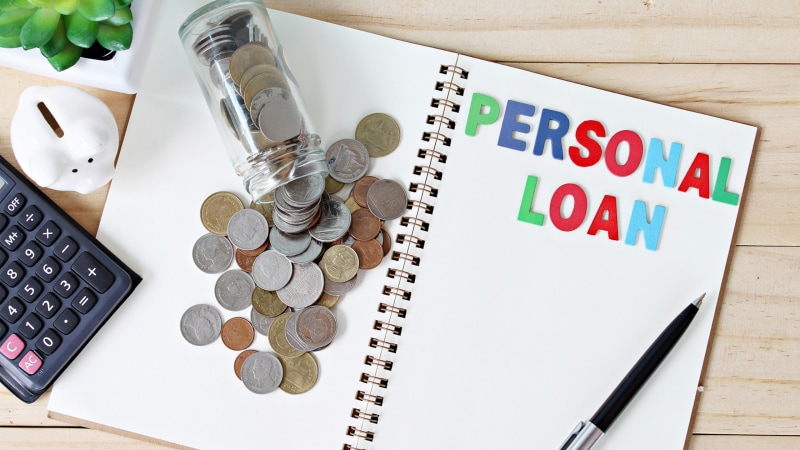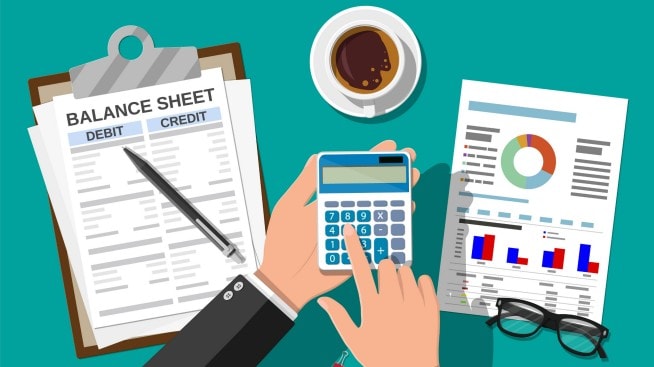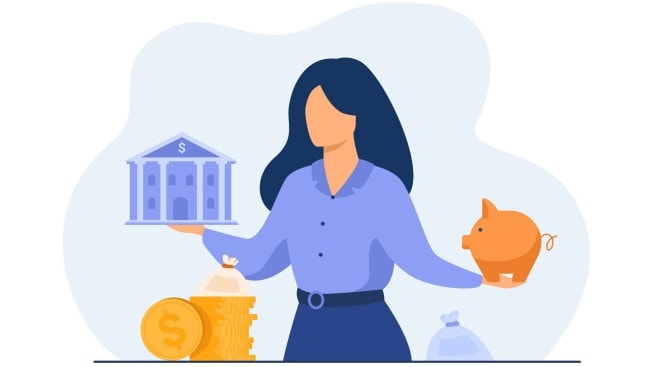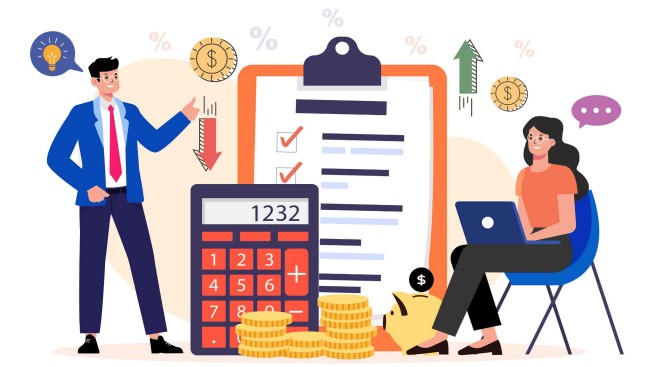Personal loans and how they affect your credit score

Perhaps your first exposure to a loan was borrowing small amounts of money from your parents or a friend. Maybe you were given an allowance and had to learn how to manage your money—when to spend, when to save and when to pay someone back. Over time, purchases become larger, and you may need to take out a personal loan to pay for necessities or wants that fit your life. You may be considering taking out a loan to cover these costs, but is a personal loan right for you? What is it and how is this different from other kinds of loans?
In this article, you'll learn:
- What a personal loan is
- The average credit score required for a personal loan
- How a personal loan affects your credit score
- When to apply for a personal loan
- When to borrow vs. when to charge a credit card
What is a personal loan?
A personal loan is when you borrow funds from a lender who you pay back over time in fixed amounts or installments. Typically, this type of loan comes with a term length of 2-7 years. They can range anywhere from $1,000–$100,000. According to Experian™, the average U.S. personal loan is under $20,000.
Personal loans are considered unsecured loans because they do not require some form of collateral, such as a down payment for a mortgage or a car when taking out an auto loan. Loans predicated on collateral are considered secure loans.
Personal loans can be used for many purposes, including:
- Large purchases (for example, remodeling a home)
- Emergency expenses (such as medical bills)
- Consolidating and paying off other debts
Average credit score required for a personal loan
When you take out a personal loan, your lender will want to look at your credit score. A good credit score indicates that you're responsible with your money and deemed creditworthy, helping with approvals and lower annual percentage rates (APRs).
In order to get a personal loan, you'll want to have a VantageScore3.0® of at least 660 and a FICO® score of around 670. Don't know your score off the top of your head? No problem. When you enroll in Chase Credit Journey® you'll get access to your Experian™ credit report and a free credit score, as well as insights about what your score means.
How a personal loan affects your credit score
Applying for a personal loan may be necessary for a variety of reasons—whether it's for an emergency or making a large purchase. You may be wondering how getting a personal loan could affect your credit score. Below we'll dive into the positive and negative impacts opening a personal loan can have on your credit.
Do personal loans build credit?
There could be long-term positive impacts to your credit when you open a personal loan. For example, opening a new account contributes to your credit mix. Credit mix consists of the various credit card accounts and loans you may have that demonstrate your ability to make payments towards multiple lines of credit. This factor is considered "highly influential" for your VantageScore3.0 and accounts for about 10% of your FICO score. Additionally, if you make your payments towards a personal loan on time and in full, you're boosting your payment history, another important category when determining your credit score.
Finally, when you take out a personal loan, you've increased your total amount of available credit. When you divide your balances by your combined credit limits, you get what's called a credit utilization ratio. The lower the ratio, the better it is for your credit score. When you take out a personal loan, you can improve your credit utilization ratio by having more available credit compared to your total balances.
Does a personal loan hurt your credit?
Initially, yes. When you take out a personal loan, your lender will run a hard inquiry (or a "hard pull"). This is when the lender wants to get proof of your credit and creditworthiness by accessing your credit report and determines what APR to give you. A hard inquiry has a short-term negative affect on your credit score—it's typical for your score to be reduced by roughly 5 points in the near term. However, you can quickly improve this by making regular, on-time payments. On the other hand, if you begin missing payments or not paying each installment in full, you'll start to see this reflect negatively in your score. The longer you go without making payments, the more consequences you could face, such as additional fees or derogatory remarks. These consequences can cost you 100 points or more depending on the severity of the activity and your current credit score.
When to apply for a personal loan
There are plenty of reasons why you might apply for a personal loan—maybe you need to pay for sudden medical expenses. Perhaps you and your loved one are looking to find a venue for your wedding. Whatever the reason, personal loans can help initiate major purchases and get you started on your next life milestone. Remember that applying for a personal loan is different from using other lines of credit, such as credit cards. Credit cards allow you access to revolving credit, meaning your credit replenishes after you've paid off your balances at the end of a billing cycle. A personal loan, on the other hand, has a fixed APR and may have more available funds than the funds you can get with a credit card. They both come with their pros and cons —and it's important to know which one will work better for you depending on your situation.
When to borrow vs. when to charge your credit card
If you're debating on whether to take out a personal loan vs. putting a purchase on your credit card, you may want to consider a few points. For example, is the purchase itself higher than your credit limit? If so, you may want to take out a personal loan, given that your card alone won't be able to cover the purchase.
Additionally, you'll want to consider if this purchase will have lasting benefits. Depending on the card you use as well as its terms and conditions, a large purchase may allow you to earn points or cash back. If you believe you have the funds to cover this payment, you may want to use your card to optimize your card's rewards. Be mindful that if you can't make the payment in full, you could face higher APRs and have to pay additional accrued interest.
Monitor your credit score
Whether you decide to take out a personal loan or make a large purchase on a credit card, you'll want to keep your eye on your credit. Your financial decisions will cause it to fluctuate, but you don't want to make the wrong choices and find yourself with a low credit score. By keeping track of any changes, you're putting yourself in the best position to achieve a healthy credit score as you make these major life decisions. You can keep track of your credit by enrolling in Chase Credit Journey® and taking advantage of its free credit monitoring services.



